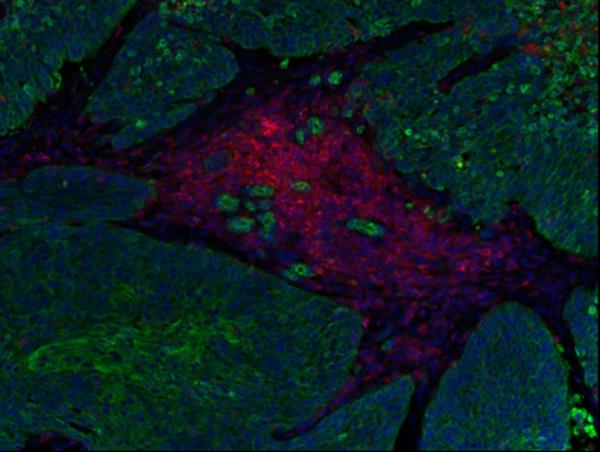Madrid, Sep 16 (EFE).- Scientists from several research centers have tested in mice the potential of a new immunotherapy to combat solid tumors and have demonstrated the effectiveness that they can have «stab cells» to strengthen the patient’s defensive cells.
The work was coordinated by the Spanish National Cancer Research Centre (CNIO) and the 12 de Octubre Hospital in Madrid, and the findings were published in the journal OncoImmunology.
Strategies that take advantage of the body’s natural defense system to combat cancer -the different kinds of immunotherapy- They have already shown good results in several types of cancer, but not yet in all of them, the CNIO recalled in a note released today.
In this context, this work has demonstrated in animal models the effectiveness of a new immunotherapy to treat solid tumors, based on strengthening a type of cells of the patient’s immune system, the «T lymphocytes».
He therapeutic potential This new immunotherapy (called “STAb-TIL”) has been validated in animal models with a type of lung cancer, CNIO explained.
The technique is based on extracting the tumor from the T-cell patient, called «TIL» (for its acronym in English), and genetically modify them in the laboratory to enhance their anti-tumor capacity, increase their number, and reintroduce them back into the patient to destroy the tumor.
This type of adoptive cellular immunotherapy using “TIL” has already demonstrated remarkable therapeutic efficacy in patients with melanoma, which has led to the approval, last February, by the US drug agency, of the first therapy using this technique for adult patients with certain types of melanoma. melanoma.
In other types of cancer, however, adoptive cellular immunotherapy with “TIL” had not shown clinical benefits, the CNIO has noted.
Researchers have used a new strategy to strengthen the patient’s lymphocytes, and have modified them using their own technique: «stab cells» (or “STAb-T” cells).
In it, T lymphocytes are modified so that they can produce a special type of antibody called bispecific, which can recognize two targets, one in the tumor cell and another in the T lymphocyte.
In this way, bispecific antibodies put defensive cells in contact with tumor cells, facilitating the elimination of the latter.
The efficacy of immunotherapy with STAb-T cells is currently being evaluated in a First-in-human clinical trial for the treatment of patients with certain leukemias.
In addition, stab cells have also recently been shown in the laboratory and in animal models to be more effective than the immunotherapy preferably used for the treatment of multiple myeloma.
The work has been coordinated by Luis Álvarez-Vallina, head of the H12O-CNIO Cancer Immunotherapy Clinical Research Unit and the Cancer Immunotherapy Unit (UNICA) of the 12 de Octubre University Hospital, and its first author is Anais Jiménez-Reinoso.

















